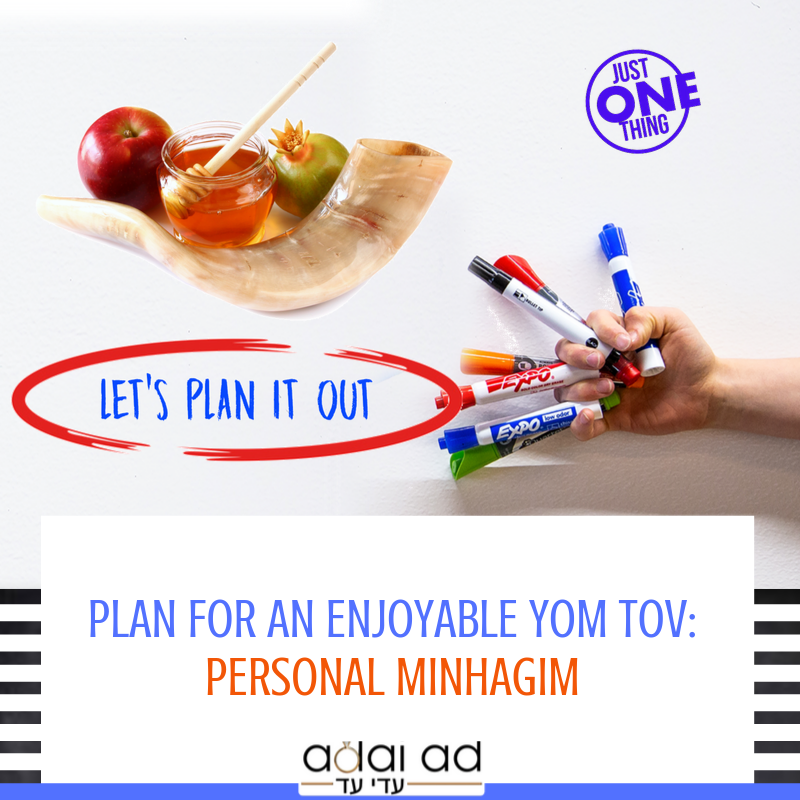You want a meaningful and enjoyable yom tov for all – you, your spouse, your children, your guests. As a couple, plan the details of Yom Tov so that all runs as smoothly as possible. Pre-planning will help pre-empt disappointments and dashed expectations.
PERSONAL MINHAGIM/ HANHAGOS
Share how you envision your Yom Tov will go. Some of the minhagim that you think are regular may be new to your spouse. “I go to shul at 6 AM to say tehillim with a minyan”, “I practice Tannis dibur, I don’t talk to anyone at all”, “I like to be the last one out of shul, so I get a few minutes alone in the shul”. Also talk about food minhagim. Special dress. Don’t expect that you spouse ‘just knows’ or is a mind reader.
• Be curious to better understand your spouse’s minhag. Respect it, even if it doesn’t (yet) make sense to you. Try to accommodate, as possible.
• If your minhag will impede with your spouse’s schedules and norms, talk about that. Don’t insist that it must go your way. Your shalom bayis is very important. Talk to your mashpia, what you think is absolute halacha may actually be a chumrah that may have to be shelved for a few years so that your spouse and children can get the attention and support they need.
• If you want to bring in a new minhag or chumrah to your family, talk about the process of how you came to learn about it and want it for you (and your family). You have gone through a learning and transitioning process about this issue; give your spouse space to work through it too, and even to reject it.
• (Not necessarily Rosh Hashanah related, but other Yomim Tovim: about lchaims, kidushim after davening, Simchas Torah schedules and habits – all should be discussed as a couple.)


